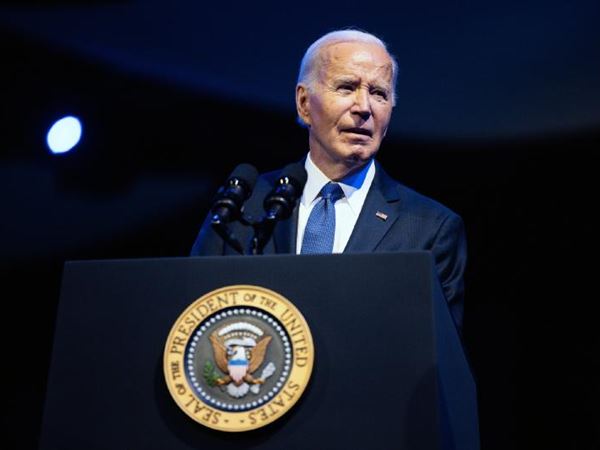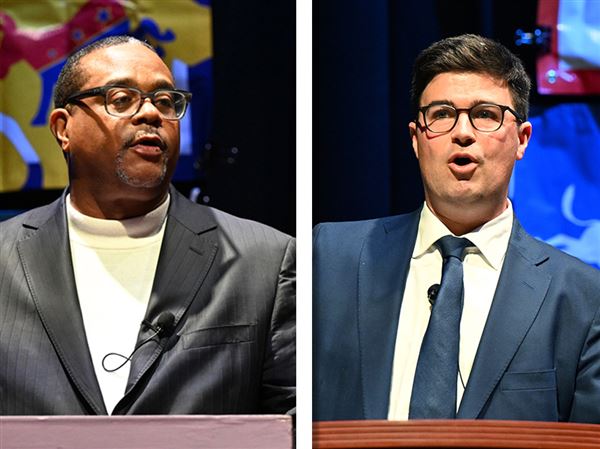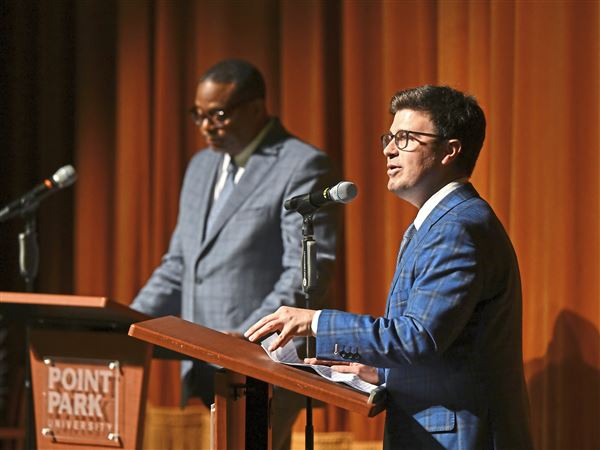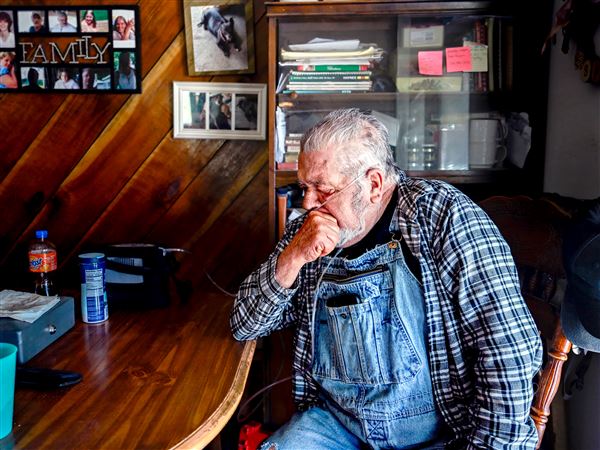LONDON -- There is barely a week to go before his first anniversary in 10 Downing St., the spring weather in Britain has been some of the best in years, and he has the benefit, at least for the moment, of the mood of popular well-being generated by the rich pageant of Friday's royal wedding.
Yet all is far from well for Prime Minister David Cameron and his coalition government as they face their first nationwide elections on Thursday. More than 30 million Britons will be eligible to vote in local council elections and, crucially for the coalition, in a referendum to decide whether to change the way Britain elects its Parliament.
A range of recent opinion polls showed referendum voters poised to inflict a heavy defeat on a proposal that would scrap the current electoral system -- whoever gets the most votes wins the seat outright -- in favor of a new voting system known as "alternative vote," or A.V., a system of ranked preferential voting used in Australia and some other places, and one that its advocates say would make electoral politics here much fairer.
Under the A.V. process, seen by enthusiasts and detractors alike as a first step toward proportional representation, voters rank all candidates for a parliamentary seat in order of preference, setting off a rolling recount if no candidate gains 50 percent on the first count of first choices.
In each recount, the candidate with the lowest vote is eliminated and his or her backers' second choices are redistributed, until one candidate reaches 50 percent and is declared the winner.
Advocates of the existing system often say that allowing the vote leader to win outright is more likely to produce strong governments than the A.V. system is, since it distributes seats more evenly across the political spectrum and makes clear-majority victories by single parties harder to achieve.
That is a point readily conceded by supporters of the proposed alternate vote system, who favor it at least in part because it would be likelier to lead to more coalition governments of the kind common in the countries of Continental Europe that have adopted various forms of proportional representation.
Mr. Cameron's Conservative Party has strongly opposed the proposed new system, calling it expensive, complex and an invitation to allowing minority parties, and even extremist groups, to gain a stronger foothold in government. The opposition Labour Party, meanwhile, is deeply split on the issue, with its leader, Ed Miliband, campaigning for it. But many senior Labour figures have aligned with the Conservatives in urging a "no" vote, saying that the existing system has served Britain well.
And so, with victory in the referendum seemingly within grasp, why has Mr. Cameron approached the referendum with a furrowed brow? Because, many of Britain's political commentators say, a win for the "no" camp is sure to widen the divisions that have been growing for months between the Conservatives and their partners in the coalition government, the Liberal Democrats, to the extent of destabilizing the coalition or even imperiling its survival.
As Britain's perennial third-place party, the Liberal Democrats and their leader, Nick Clegg, set a referendum on the alternate vote system as a central condition for joining the coalition last May, when a general election left the Conservatives short of a House of Commons majority. The Liberal Democrats calculated that A.V. would have added as many as 30 seats to the 57 they won in 2010, and Mr. Clegg said the referendum offered a "historic opportunity" for the party to break out of the political doldrums where it has been marooned since the 1930s.
After the Conservatives promised the referendum, Mr. Clegg accepted the post of deputy prime minister, where he has had more influence than any Liberal leader in decades even as popular support for the Liberal Democrats and Mr. Clegg personally has slumped.
The government's early months were marked by amity between the coalition partners. In October, they united behind an austerity program that will cut government spending by an average of nearly 20 percent in most departments over the four years leading up to 2015, when the next election is expected, if the coalition holds together that long.
As a means of protecting the coalition, Mr. Cameron and Mr. Clegg initially agreed to play low-profile roles in campaigning connected to the referendum. But in recent weeks, under pressure from their parties, both men have plunged into the campaign in opposite directions, joining in mutual recriminations that have been traded daily on the stump by senior Conservative and Liberal Democrat cabinet ministers.
One report Sunday pictured a new frostiness between Mr. Cameron and Mr. Clegg, whose similarities -- both are in their mid-40s, and from families accustomed to prosperity and privilege -- helped to smooth the coalition's way.
"The pair are still meeting regularly, but these occasions are now wary and professional, not warm and convivial. Every conversation is now a negotiation," James Forsyth, a reporter with favored access to Conservative top leadership, wrote in The Mail on Sunday.
But the barbs exchanged between Mr. Cameron and Mr. Clegg have been mild compared with those from their political associates. Vince Cable, the leading Liberal Democrat maverick in the cabinet, used an interview in The Independent to signal that he sees Britain's political future resting not on the current coalition but on a new alliance between Liberal Democrats and Labour.
With A.V., he said, Britain's "progressive majority" could deny power to "a right-wing clique who want to keep things as they are" -- a characterization of Mr. Cameron and the Conservatives calculated to encourage grass-roots Liberal Democrats who favor an end to the coalition, and with it, in all likelihood, an end to Mr. Clegg's time as party leader.
First Published: May 2, 2011, 4:00 a.m.














